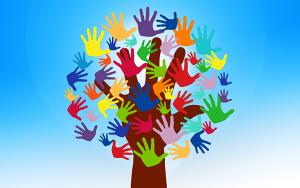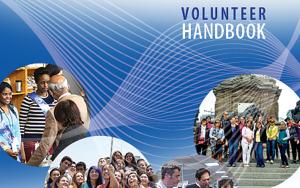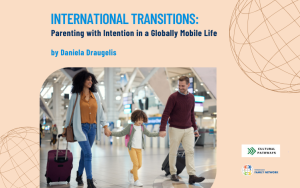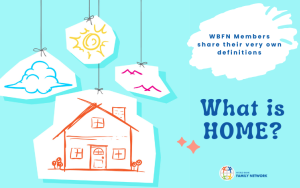When President Wolfensohn provided the World Bank Family Network (WBFN) with the grant to study the problem of domestic abuse, one of the provisions was that they should “inform family members of staff of their individual rights.” Part of the educational effort was a series of articles, written by the then WBFN President Barry McIsaac, and originally published in the monthly WBFN newsletter Mosaic. The WBFN Spouse Issues Committee (SPIC) revised and updated these articles in an effort to educate the larger WBG community; these are now available online under Mosaic pdf in the News and Views section.
If you or someone you know is being threatened, help is available. Every one of the local jurisdictions in the Washington DC area, whether in Maryland, DC or Virginia, has a special unit designed to help victims of abuse. The staff of these units are specially trained to explain the law to you in a way you can understand, and to tell you what choices you can make to get protection and help for yourself and your children. Remember—abuse is wrong. No one is obliged to remain in an abusive situation. If you need help yourself, or you know someone who needs help, please call the WBG Domestic Abuse Prevention Program (DAPP) Hotline at 1-202-458-5800 or visit the WBG Domestic Abuse Prevention Program webpage at https://www.worldbank.org/en/work-with-us/hsd/home/domestic_abuse_preven...
My friend is abused by her husband: How can I help?
- In cases of immediate danger, or injury, call emergency services on 911, and tell them that domestic violence is involved. They will know how to respond. The victim should insist that a police report is made.
- Neighbors who can hear a violent disturbance in progress should also alert the authorities via 911.
Non-emergencies
- MOST IMPORTANTLY, encourage the victim to talk with a professional who knows about partner violence.
- World Bank Group staff and family members are fortunate in having access to the Domestic Abuse Prevention Program (DAPP) to deal with domestic abuse problems. The DAPP services are confidential, free of charge and available to all WBG staff, spouses/partners and families at HQ and in Country Offices. Call the DAPP hotline 24/7 at 1-202- 458-5800. Counseling can be provided in most major languages.
- The DAPP provides “case-management” where several issues need to be pursued at the same time, e.g. domestic abuse cases may include crisis help, safety and welfare of adults as well as children, physical and mental health, accommodation, legal/immigration status, and so on. The DAPP also provides confidential referrals for abusers who seek help in changing their behavior.
- Unless the victim is a child, a professional will not inititiate action on allegations of abuse that are made by third parties. Third parties may call the DAPP hotline for guidance in dealing with domestic abuse, but requests for direct help with domestic abuse situations must come from the parties directly involved in the situation. So give your friend the moral support she/he needs to make that first call for help!
- More resources for help are listed in the WBFN Domestic Abuse informational brochure available in the office and all World Bank restrooms at HQ. Brochures are also available in several Country Offices. You can also access the WBG Domestic Abuse Prevention Program website at https://www.worldbank.org/en/work-with-us/hsd/home/domestic_abuse_preven...
- National Domestic Violence Hotline 1-800-SAFE.
You can also help the abused person in these ways
- Encourage talking about it in a safe place. Listen, believe, and let the victim know she/he is not alone.
- Be patient and offer continued support.
- Express admiration for the victim’s courage in trying to make a change.
- Help identify options and put together a “safety plan” (that involves assembling important documents, deciding on a safe haven and what to do) in case the victim needs to escape in a hurry. The DAPP can also assist with safe planning.
- Encourage the victim to start a journal recording all she/he can remember about the past abuse (events, dates, actions, who knew about it etc), and documenting incidents as they occur. This journal should be kept in a very safe place. The journal should NOT be made on a computer to which the abuser has access. Such a record is invaluable to the victim, and the professionals who will help her/him. It ensures that no important details are overlooked later.
Where can victims go when they decide to leave?
- Shelters for battered women are the safest place. Fleeing to relatives or friends is not a good alternative: the abuser is very likely to find the victim(s) there, endangering the victims as well as those sheltering them. But the optimal solution is to get professional help e.g. from The DAPP: Domestic abuse victims can seek protection from abuse in the courts. A Protection Order usually allows the victim(s) to remain in the marital home, while the abuser is removed and barred from returning for the duration of the Order.
- Bear in mind that a victim often makes several failed attempts to leave the abusive situation before succeeding.
It is helpful to the victim if you don’t...
- judge or criticize a victim’s decisions;
- press the victim to make quick decisions–let her/him decide when to act;
- underestimate the danger of a situation;
- take too much responsibility, or you may increase danger to the victim.
When abuse of minors is suspected or alleged, third parties have an obligation to report this to the authorities, anonymously if necessary, and the authorities are obligated to investigate. For WBG families in the US, you can report child abuse here:
Maryland - Prince George’s County Protective Services 301-909-2450; after 4.30pm, 301-699-8605; TTY 1-800-735-2258.
Virginia - Arlington Protective Services 703-228-1500 (24h); TTY 703-228-4611.
Phone Friend 202-223-2244; Mon-Fri 3-9pm; Sat 1-5pm.






